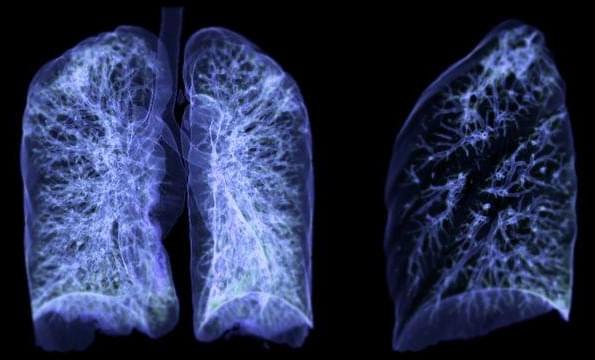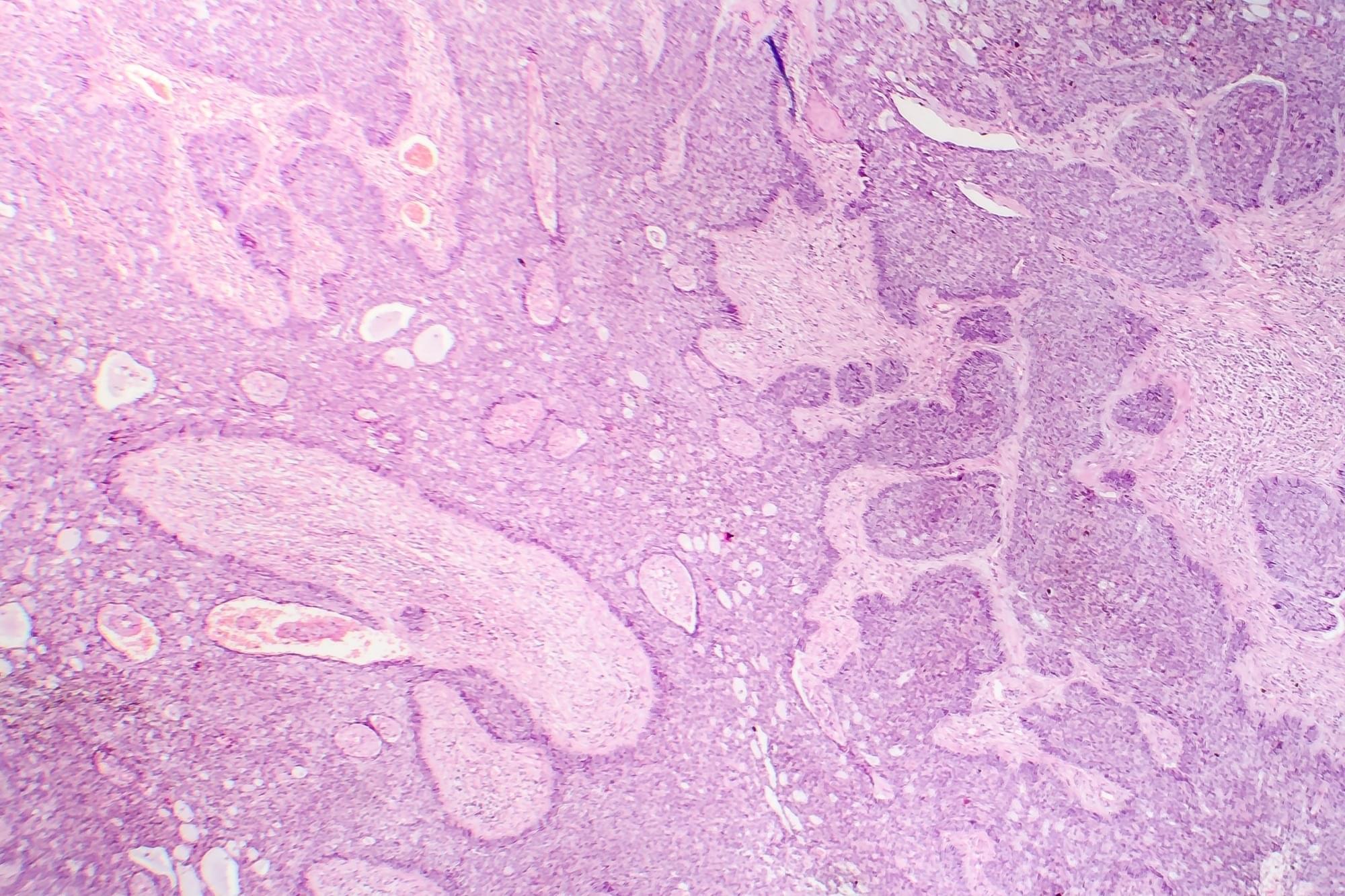Cosmic rays may have given right-handed genetic helixes an evolutionary edge at the beginning of life’s history.


Join us on Patreon! https://www.patreon.com/MichaelLustgartenPhD
Discount Links/Affiliates:
Blood testing (where I get the majority of my labs): https://www.ultalabtests.com/partners/michaellustgarten.
At-Home Metabolomics: https://www.iollo.com?ref=michael-lustgarten.
Use Code: CONQUERAGING At Checkout.
Clearly Filtered Water Filter: https://get.aspr.app/SHoPY
Epigenetic, Telomere Testing: https://trudiagnostic.com/?irclickid=U-s3Ii2r7xyIU-LSYLyQdQ6…M0&irgwc=1
Use Code: CONQUERAGING
NAD+ Quantification: https://www.jinfiniti.com/intracellular-nad-test/

A significant advancement in knowledge of the link between cognition and genetics has been made thanks to a study led by Université de Montréal graduate students Guillaume Huguet and Thomas Renne, working under the supervision of medical geneticist Sébastien Jacquemont, an associate professor of pediatrics and a researcher at the UdeM-affiliated CHU Saint-Justine.
Published in Cell Genomics, the research explored how the copy number variation, or CNV, of certain DNA segments can influence cognitive abilities.
Analyzing the CNV of nearly 260,000 people in the general population, the scientists were able to compare each individual’s CNV and cognition to define a reference model—a kind of “map” of the effects of CNV on cognition, such as the intelligence quotient and memory—and to establish links between these CNVs and achievements within the brain, as well as in other organs and tissues.

A team of researchers at CHU Sainte-Justine and Université de Montréal has succeeded in using bioinformatics to develop a statistical model to assess how the gain or loss of genetic material impacts the risk of autism.
The results of this work are presented today in the American Journal of Psychiatry.
This project highlights the fact that, besides the genetic mutations formally associated with autism, there are thousands of genes in the human genome that contribute to increasing the risk and severity of autism based on genetic scores.

Common genetic variants may underlie autism spectrum disorder and schizophrenia across human populations, according to a study appearing September 11th in the journal Cell Reports. In line with previous studies in Caucasians, the researchers found that Japanese individuals with autism spectrum disorder and schizophrenia have overlapping copy number variations (CNVs)—inter-individual variations in the number of copies of a particular gene.
“The strength of our study is the systematic head-to-head comparison of pathogenic CNVs and biological pathways between autism spectrum disorder and schizophrenia,” says senior study author Norio Ozaki of Nagoya University Graduate School of Medicine. “Previous studies in Caucasian populations found overlap in pathogenic CNVs between the two disorders, but their analyses were limited to a small number of genes and CNV loci.”
Autism spectrum disorder and schizophrenia have complex inheritance patterns, with multiple genetic and environmental factors influencing disease risk. Available evidence points to genetic overlap between the two clinically distinct disorders. For example, they tend to co-occur at a higher rate than would be expected in the general population, and a large epidemiological study showed that a family history of schizophrenia in first-degree relatives is a risk factor for autism spectrum disorder. In particular, previous studies have revealed that these two disorders are associated with an increased burden of CNVs, and that rare CNVs in specific loci are shared risk factors for both disorders.

An international study led by the University of Oulu and Oulu University Hospital has identified six genetic regions associated with the inflammation of the eye’s iris, also known as anterior uveitis. The research also uncovered a genetic correlation between anterior uveitis and inflammatory bowel diseases (IBD). These findings contribute to a better understanding of the mechanisms behind anterior uveitis and its connection to common autoimmune diseases.
Each year, approximately 600 Finns are diagnosed with anterior uveitis. This is an intraocular inflammation that can occur at any age but is most common in individuals aged 20–50. Anterior uveitis is known to be associated with several autoimmune diseases, and certain tissue types may also predispose individuals to it. However, the precise mechanisms underlying the disease remain largely unknown, and the root cause often remains unclear.
The aim of the study was to investigate the genetic background of anterior uveitis, a field in which knowledge has been limited. This extensive international collaboration utilized biobank data from Finland, Estonia, and the United Kingdom, enabling comparisons between more than 12,000 patients with anterior uveitis and nearly 1 million controls.

People with shorter telomeres — the protective caps at the ends of their chromosomes — may have a higher risk of developing age-related brain diseases such as stroke, dementia, and late-life depression (typically diagnosed at age 60 or older). This finding comes from a preliminary study set to be presented at the American Stroke Association’s International Stroke Conference 2025, a leading global event for stroke and brain health research, taking place in Los Angeles from February 5–7, 2025.
Telomere length in white blood cells (leukocytes), known as leukocyte telomere length, is a well-established marker of biological aging. As people age, telomeres naturally shorten, reducing their ability to protect chromosomes, which accelerates cellular aging and increases vulnerability to age-related diseases. While telomere length is partly determined by genetics, ancestry, and gender, it is also influenced by lifestyle factors and environmental stressors such as diet, exercise, and pollution.

Link :
RNA sequencing has emerged as a powerful tool for detecting various types of cancers and gaining a deeper understanding of tumor biology.
However, many samples used in these analyses are derived from tumor tissues preserved as formalin-fixed paraffin-embedded (FFPE) blocks. While FFPE blocks are excellent for histological examination, they pose significant challenges for molecular analysis due to the potential degradation or crosslinking of genetic material.
This application note describes the use of targeted custom RNA panels to overcome these challenges by enabling the robust and sensitive detection of gene expression profiles from FFPE non-small cell lung cancer samples.

Neoadjuvant therapy with hedgehog inhibitors has an overall response rate (ORR) of 71%, but adverse events (AEs) like fatigue, muscle cramps, dysgeusia, and hair loss often lead to discontinuation and low compliance.
OVs represent a class of intratumoral therapeutics that might be a safe and effective neoadjuvant therapy for difficult-to-resect BCCs.
Talimogene laherparepvec (T-VEC) is an OV, a genetically engineered herpes simplex virus 1 (HSV1), approved for treating injectable, unresectable melanoma lesions in the United States and Europe. T-VEC has a dual mode of action and can alter the tumor microenvironment (TME) by activating adaptive and innate immunity.

The data inscribed into the crystal is carefully annotated with universal elements like hydrogen, oxygen, carbon, and nitrogen, as well as the four DNA bases—adenine, cytosine, guanine, and thymine—that make up the genetic code. Additionally, the molecular structure of DNA and the arrangement of genes within chromosomes are depicted, offering clear instructions on how to interpret the genetic information stored within.
However, it is important to note that the 5D memory crystals require a highly specialized skill set and advanced equipment to inscribe and read the data stored within the crystals, so those looking to re-establish the human race after an extinction event may have to refer to more traditional means.
The crystal, made from fused quartz, is one of the most chemically and thermally resilient materials known on Earth, and can endure temperatures as high as 1000°C, resist direct impact forces up to 10 tons per square centimeter, and is unaffected by long-term exposure to cosmic radiation. The longevity and storage capacity of the 5D memory crystal earned it a Guinness World Record in 2014 for being the most durable data storage material ever created.